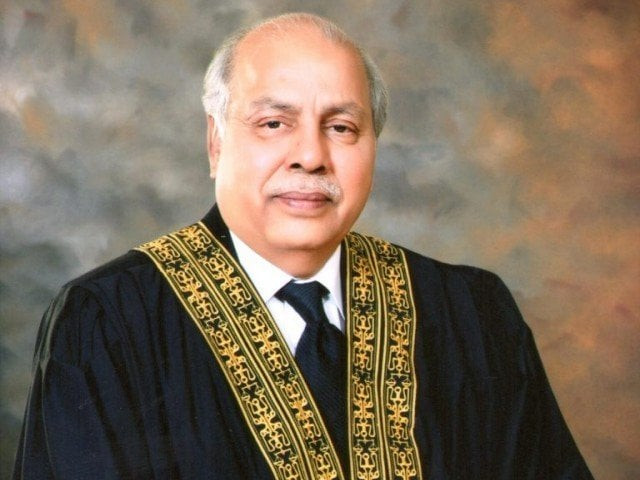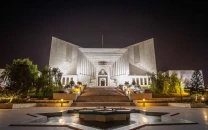SC rejects plea against holding dual offices by CJP
Chief justice is also chairman of NJPMC, which examines judiciary’s performance

Chief Justice of Pakistan Gulzar Ahmed. PHOTO: FILE
The CJP is also chairman of the National Judicial Policy Making Committee (NJPMC), constituted under Ordinance (LXXI) of 2002. The chief justices of all the high courts are members of that committee.
The same committee had also introduced the National Judicial Policy during the tenure of former chief justice Iftikhar Muhammad Chaudhry. But the committee was not much active during the terms of his successors. However, the last CJP, Asif Saeed Khosa, made it affective by establishing model courts and district police complaints cell.
The law, which allows the CJP to hold dual offices, was challenged by renowned petitioner Advocate Riaz Hanif Rahi, who is known to challenge the appointments of top functionaries.
Last year, the same petitioner had challenged the army chief’s extension. Later, his request to withdraw the petition was turned down by the SC.
During the tenure of former CJP Mian Saqib Nisar, Rahi had approached the apex court against the appointment of Justice Qazi Faez Isa.
SC reprimands Sindh police over non-arrest of accused in Dadu triple murder case
Interestingly, Justice Nisar rejected the registrar office’s objections against that petition and fixed it before the bench. Later, when the lawyers raised their voice against entertaining the petition, Nisar rejected it.
In the present case, Rahi had challenged the dual offices of CJP under the NJPMC Ordinance 2002 before the Islamabad High Court but his plea was rejected for lacking locus standi.
The three-judge bench of the apex court, headed by Chief Justice of Pakistan Gulzar Ahmed, on Tuesday took up the petition.
Firstly, Rahi pointed out that when the case was fixed in 2018 before former CJP Nisar’s bench, he had recused himself from hearing it as the CJP office was being impleaded as a party.
However, the bench rejected his plea to transfer the case to another bench.
Meanwhile, Rahi contended that holding dual offices by the CJP is against trichotomy of power. Likewise, policy making is the domain of executive and not the judiciary, he adds.
Rahi states that holding double offices is also violation of the judges’ code of conduct, adding that the lower courts are not subordinate to the NJPMC and these are administered by high courts under Article 202 of the Constitution.
Rahi referred to two apex court judgments against holding of dual offices by one individual.
However, the bench observed that the NJPMC makes the judiciary stronger and the chief justice, being the committee chairman, does not get any perks and privileges.
Another member of the bench – Justice Ijazul Ahsan – noted that the NJPMC examines the performance of judiciary.
The bench rejected Rahi’s petition.



















COMMENTS
Comments are moderated and generally will be posted if they are on-topic and not abusive.
For more information, please see our Comments FAQ